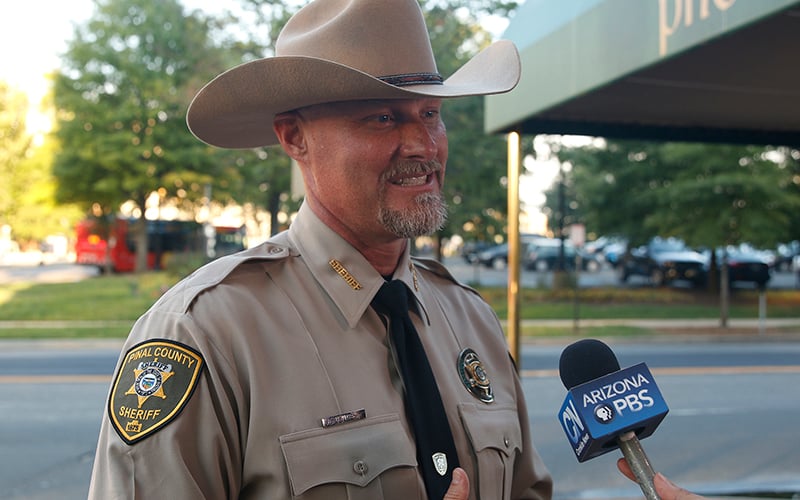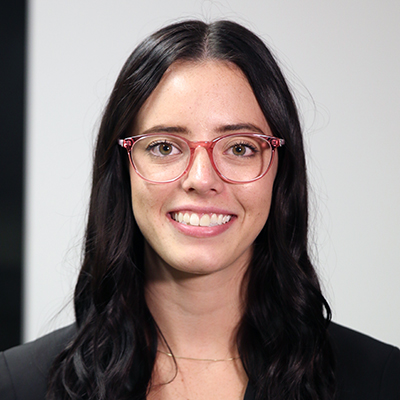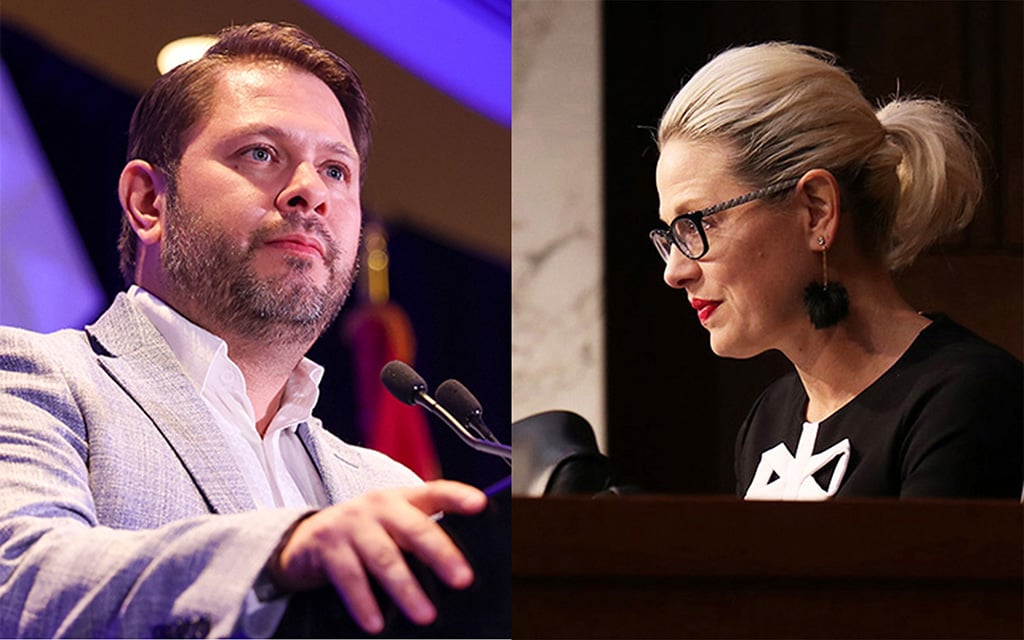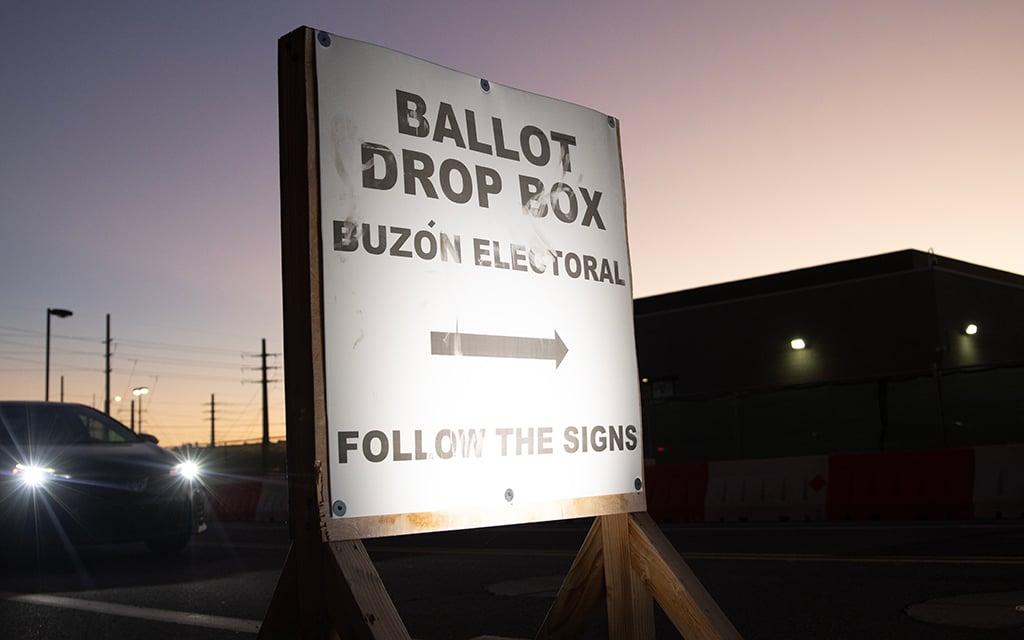WASHINGTON – Sen. Kyrsten Sinema, I-Ariz., is putting her money where her mouth isn’t – in a race for reelection that she has not yet said whether she will enter.
Sinema reported raising more than $1.6 million in the last quarter, leaving her with just under $10.8 million in cash on hand, according to her most recent filing with the Federal Election Commission.
That’s half as fast as the fundraising by Rep. Ruben Gallego, D-Phoenix, who reported bringing in $3.1 million in the last quarter, for a total of $6.8 million for the year. While he is raising more, he is also spending more: Gallego had $3.8 million on hand as of June 30.
The only other candidate to file a report with the FEC, Pinal County Sheriff Mark Lamb, trailed well behind the other two. Lamb, who is seeking the Republican nomination, reported raising $607,722 in the quarter and having $335,337 on hand.
Even though Gallego would not face off in a primary against Sinema, who left the Democratic Party in December to become an independent, analysts point out the different sources of their fundraising support so far.
Gallego reported that $3.8 million of his total has come from donors giving $200 or less, with his campaign saying the average donation was $29.
In contrast, Sinema said $1.4 million has come from small donors but $6.8 million came in the form of donations of $2,000 or more. Her largest donations were transfers from her own political action committee, Sinema Leadership Fund, totaling more than $1 million.
“With two quarters of momentum and a strong foundation of grassroots support, we are the only team in this race that is built to win,” Nichole Johnson, Gallego’s campaign manager, said in a statement.
Rodd McLeod, an Arizona political campaign strategist, thinks Gallego’s focus on grassroots donations has put him in a strong position against the independent incumbent.
“I think that Congressman Gallego has proven to be a successful fundraiser two cycles in a row,” McLeod said. “And I think what you’ve seen from Sen. Sinema is that there’s no grassroots fundraising base for her at all.”
Erin Covey, a reporter and analyst for Inside Elections, thinks that Sinema’s second quarter fundraising numbers do not provide any indication about her intention to run: Her totals keep her competitive, without officially entering the race.
“I really think that it wasn’t enough to be like a clear signal that she’s maybe leaning more towards running for reelection, but it wasn’t low enough to … spur any more retirement rumors,” Covey said.
Where Sinema currently holds the upper hand is in the amount of money she has available to spend, said Sean Noble, a political consultant for Compass Strategies.
“Gallego is out-raising her in the sense of a quarter-by-quarter over the last two quarters, but he’s also spending a lot of money to get that money,” Noble said. “So his burn rate is pretty high and her’s is not.”
Gallego’s campaign has spent more than $2 million in each of the first two quarters, according to his FEC filing. The high burn rate is likely necessary. While Sinema has name recognition as the incumbent, Gallego needs to spend money to establish himself across the state, Covey said.
“This is the prime time for him to be introducing himself to voters and getting his message out there before he’s actually going to face serious negative ads,” she said.

Pinal County Sheriff Mark Lamb, in a 2018 file photo, raised more than $600,000 in the last quarter for his bid for the 2024 GOP nomination for Senate from Arizona. (File photo by Vandana Ravikumar/Cronkite News)
A Sinema spokesperson said the second-term senator is not focused on campaigning right now.
“Kyrsten promised Arizonans she’d be an independent Senator who delivers lasting solutions, and that’s exactly what she’s done. She remains focused on solving challenges facing everyday Arizonans, not campaign politics,” the spokesperson said in an email.
If Sinema does get in, it would set up a three-way race next fall that would be the first between three major candidates. But it’s not clear that Lamb will be the Republican nominee.
Rumors that failed GOP gubernatorial candidate Kari Lake might enter the Republican primary continue to circulate. McLeod thinks her bid “seems likely” but with her eyes ultimately set on becoming former President Donald Trump’s pick for vice president.
“It’s all unclear how it all plays out,” McLeod said.
Noble said Lamb’s fundraising is “not a strong start” and that his “lackluster, flat financing” is a good sign for Gallego.
“If Lamb can’t figure out a way to really turn on the fundraising, that’s going to cause other people to really take a look at that race,” Noble said. “That could be Kari Lake, that could be others. I don’t think that’s settled at all.”
No matter who ends up as the nominees, Covey thinks Arizona will see a lot of attention in the coming months, but not as much as Ohio or West Virginia.
“I think Arizona is definitely in that second tier, and depending on what the senator does and depending on which Republicans end up running, this could be certainly one of the most competitive races in the country,” Covey said.


